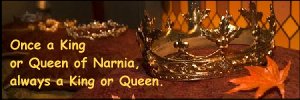3. Tolkien seems to make it fairly clear that respectability was not dependent upon wealth, emphasizing Baggins vs. Took as a representation of this concept. What do you think contributed to respectability? How could a hobbit or hobbit family earn (or lose) respect?
They would earn respect by doing what was expected of them - which was to stay at home, grow their food, enjoy their meals (and their pipes after the meal and whenever else suitable) and not do anything their ancestors hadn't done before them.
The Took family was one of the richest family (and a bit of a political leader for their area), but there was a streak of adventure in the family, one which came to the surface occasionally - and which made the family not to be completely trusted. The Took family was where Bilbo was supposed to have his sense of adventure from.
Bilbo lost whatever he lost of his respectability by going on his adventure, and by mingling with Dwarves and Elves even after that.

(avi artwork by Henning Janssen)
2. What do you think about the idea that a person/character can have two sides (Baggins vs. Took)?
2. One of my favorite things in the Hobbit is Bilbo's constant going back and forth about liking the adventure and then disliking it.
I can relate to Bilbo wanting to be adventurous and Brave (his Tookish side), but the next moment being unsure or cautions (his Baggins side).
It makes him so human, doesn't it? He's not an obvious hero who always rushes into adventure and saves the day on a regular basis, relishing the excitement.
He does sometimes save the day. And he enjoys it. And he sometimes even enjoys the adventure, the excitement, the feeling of being in the middle of where things happen.
But then he's had enough for a while, especially when things aren't going so well - and he wishes he was back in his Hobbit-hole, with his food and his pipe and his peaceful life.
I can relate to that, too - a suitable portion of adventure, and then the solid basis of peacefulness and calm, domestic bliss and time to enjoy the simple pleasures of life, an unhurried meal and some good reading afterwards.

(avi artwork by Henning Janssen)
I think part of this dichotomy in Bilbo is his age group and social class, the respectable, well-enough-off, single gentleman, who likes to live a quiet life and is seldom challenged to step outside his comfort zone.
There is a little yearning to be brave and adventurous - a little bit of his personallity is Tookish but it has been "turned off" for a while now.
When he gets the chance, sniffs adventure in the wind so to speak, it's as if it turns back on.
And nobody of 50 really wants to believe they have given up on fun and adventure. (says she knowingly)
There, shining in the sunrise, larger than they had seen him before, shaking his mane (for it had apparently grown again) stood Aslan himself.
"...when a willing victim who had committed no treachery was killed in a traitor's stead, the Table would crack and Death itself would start working backwards."

